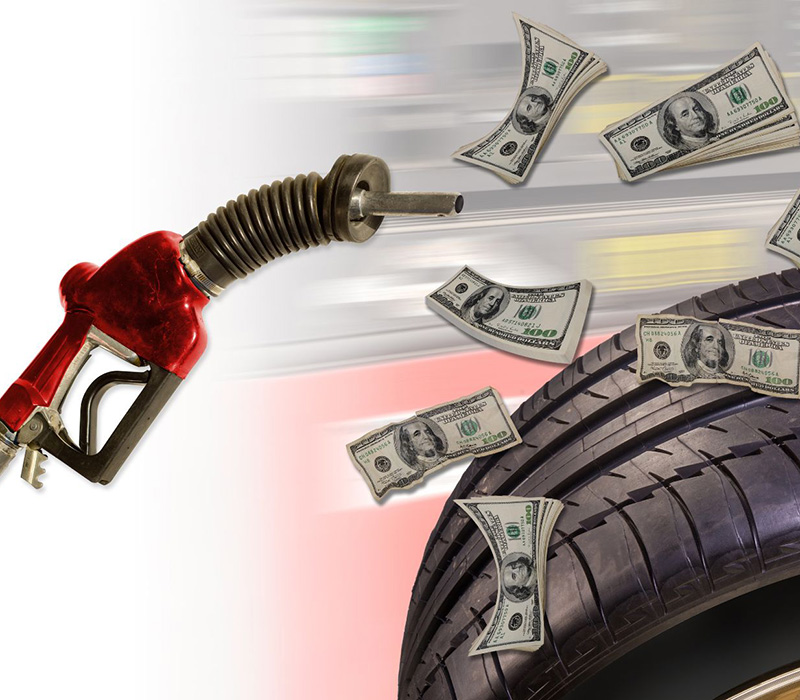
It's no secret that gas is one of society's most precious resources. Our transportation technologies depend on gas to fuel their operations, and companies that require trucking services to transport their goods nationwide rely on this resource to sustain their operations.
During the summer of 2022, the US economy faced unprecedented highs for gas pricing nationwide. With a gallon of gas averaging over $5 in most areas, full tanks cost some consumers over $100.
As the year progressed, gas prices came down to more normal levels. In fact, by year-end, the average price was down a whole $1.80 from the previous high in the summer. While this was undoubtedly a victory for the overall consumer market, many automobile owners and truck drivers are wondering what we can expect for gas prices in 2023.
Factors Impacting Gas Prices
Before examining past or future gas prices, it's crucial to understand what factors most significantly impact them throughout the year. These six metrics all interplay to determine the price on any given day. While these factors are out of your control, remaining aware of these societal features can help you avoid the highest costs.
Global Economic Conditions
The condition of the world economy impacts everything from the price of foreign goods to the gas a truck driver needs to complete their job. Since the US usually sources crude oil to manufacture gas from the Middle East, Russia, and other foreign areas, the world economy plays a significant role in determining current gas prices.
A global recession could force prices down, while increases in demand and growth may elevate the price again. Additionally, some nations may enforce a price cap on gas to encourage a downward trend in pricing.
Production and Operationational Issues
Issues with pipelines, refineries, and oil wells can impact the ability of gas supplies to reach consumers. These challenges may make it more expensive for significant gas companies to bring gas to pumps.
The BP oil spill caused significant and long-lasting environmental turmoil, creating challenges for gas suppliers. This disaster increased gas prices, and while those effects subsided, it remains one of the industry's worst disasters.
Demand for Gas and Oil
Intertwined with the global economy are demands for gas and oil. While these metrics seem more concerned with an individual country's needs, a world power's gas purchasing behaviors can impact domestic prices.
For example, experts predict that China's demand for gas may decrease this year. As one of the most prominent nations, reducing their consumption would increase the global supply, and this change would allow prices to flatten in other nations.
Federal Regulations and Taxes
Federal regulations on fuel blends play a significant role in pricing. These laws decide what percent of certain fuel types and additives qualify for certain gas qualities.
Federal and state taxes also impact prices. New York will lift their elimination of gas taxes in 2023, reinstating these additional fees and making each tank cost more for consumers.
Seasonal Fluctuations
Like with many goods, seasonal fluctuations in gas use relate to behavioral changes from weather fluctuations. During summers, you can expect to run up against higher gas prices again, with experts predicting potential $4 gallons. However, winters force most automobile owners inside for more of the day, which decreases gas prices.
Since the pandemic, many people have worked from home. This workforce adjustment allows some consumers to avoid high prices but also might encourage lower demand and prices in the market.
Geopolitics
Geopolitics is crucial as a determinant of gas prices. Russia's invasion of Ukraine caused the highest gas prices the US had ever faced. When this geopolitical turmoil began in June, the price rose above $5 a gallon.
Developments with the Ukrainian-Russian war will indeed create challenges for gas prices in the future. Remaining aware of global politics allows consumers to predict when it might be a good time to consider alternative modes of transportation.
Why Gas Prices Got So High in 2022
To project 2023 gas prices, it's essential to understand what forced gas prices to become so high in 2022. Mainly, the geopolitical turmoil and resulting manufacturing challenges from the Ukrainian-Russian war were the leading cause of these stark increases. Changes with this global conflict and other challenges from China will likely play a role in 2023 gas prices.
Industries Most Significantly Impacted By Gas Price Changes
Manufacturing, trucking, and transportation industries will likely experience significant changes from any gas price fluctuations in 2023. These industries rely on gas for daily operations and must pay close attention to transitions.
